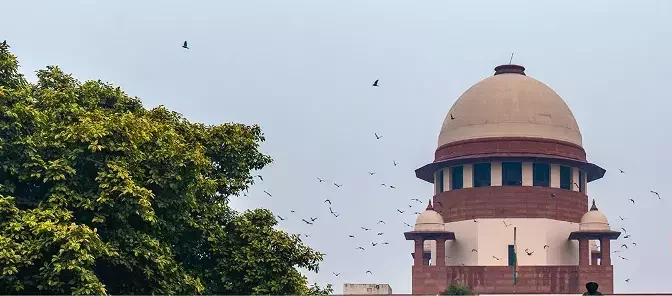The Supreme Court August 9 heard the challenge to the Union’s dissolution of 40 years old Maulana Azad Education Fund (MAEF) constituted for promoting education among educationally backward minorities.
The bench of CJI DY Chandrachud and Justices JB Pardiwala and Manoj Misra was hearing the challenge to Delhi High Court’s order which upheld the dissolution of the MAEF in April.
The petitioner represented by Senior Advocate Anand Grover contended that the General Body committee of MAEF which passed the dissolution resolution on March 7 did not reflect adequate composition as per the Rules and Regulations of MAEF. Grover argued that as per Rule 2, the 9 members nominated by the President of the foundation should belong to the educationally backward minorities from different regions, including- educationists, scientists, engineers, administrators, doctors, lawyers writers etc.
However, in the present composition which dissolved the MAEF, all 9 nominated members were in fact government officers residing in Delhi.
“First 6 members are ex-officio, rest are to be appointed from different parts of the country, but they happen to be govt members, they are picked, whole thing is colorable
It may be noted that the general body comprises of the above 9 nominated members and 6 ex-officio members.
On the contrary, the Solicitor General Tushar Mehta appearing for the Union contended that these 9 members qualified as under the category of ‘administrators’ from diverse communities as per Rule 2. He also added that the MAEF was virtually a dormant association and the funds allocated to it remained unutilized.
The CJI verbally observed the issue of composition didn’t seem to be answered by the Order of the Delhi High Court.
The matter will now be heard on Wednesday.
Background
The HC bench of the Acting Chief Justice Manmohan and Justice Mini Pushkarna observed that the decision to dissolve the MAEF is a well-considered decision, duly taken by the General Body of the MAEF in terms of the authority vested in it by way of the Bye Laws of the MAEF and as per the provisions of the Act, 1860.
It rejected the petitioners’ submission that the decision of dissolution was not in conformity with the relevant Act.
In view of the aforesaid detailed discussion, this Court finds no merit in the present petition and is not inclined to interfere in the considered decision taken by the respondents. Accordingly, the present petition is dismissed, along with the pending applications,” the court said.
The court said that in public interest jurisdiction, the Court has to look at the “big picture” and ensure that the cause of the minorities, in particular the minority girl students, as canvassed by the petitioners, is not prejudiced. (Supreme Court on MAEF)
Case Details : DRSYEDA SAIYIDAIN HAMEDA & ORS. v. UNION OF INDIA & ORS.




